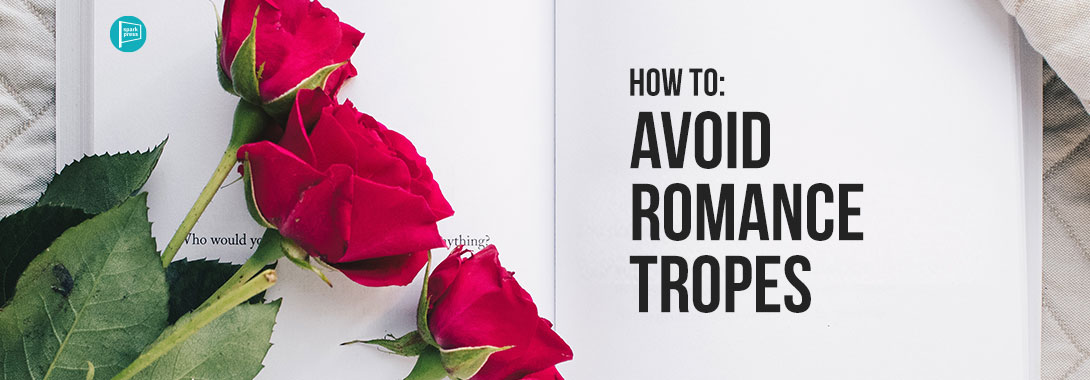
Romance tropes are everywhere from movies and books to our own expectations for love. However, love isn’t as easy as we want it to be and that’s okay! It can be hard to think of unique ideas when all we see are romance clichés. Tropes are conventions of storytelling that are very common and sometimes expected in certain genres. Characters, narrative structure, or overused phrasing are only a few examples of story elements that could be considered tropes. Avoiding these tropes will make your book stand out from the rest. Here are some tips and tricks to help come up with unique takes on common story lines.
Put a Unique Spin on it!
The main reason romance tropes are constantly used is because they sell. So you don’t need to chuck the trope entirely: try changing the premise a little to make it different. Instead of having childhood neighbors and friends fall in love, maybe two friends bond over shared experiences and realize their similarities make them perfect for each other. A forbidden love story could easily be switched around if the main character wasn’t in love with a person, but rather, obsessed with an object, idea, or goal; for example, technology, a job, shopping, or bad habits. By changing an aspect of the premise or adding an outside force, you can give it a personal twist.
Change the Circumstances
Putting a story under a new set of circumstances can make it appear completely new, even if it is derived from a trope we all know and love. Instead of having an arranged marriage, try to create another situation that forces two people to be together. A partnership between two businesses or a group project make great examples. Another trope is when two characters are stranded together on an island or an airport during a layover. Instead of making them literally alone, you could make them outcasts who feel like they cannot connect with the people around them. This allows the couple to bond over their shared circumstance and feelings of being alone as in the original trope.
Good Things Never Come Easy
Relationships are never easy, so why should they be in your book? Conflicts drive a story forward and help keep the audience guessing about what will happen next. Many love triangles give the main character two equally possible options at love. Making it seem as though those options may disappear would increase tension in your story. Also, if two friends are destined to be together, allowing them to seriously consider other options may help the ending seem less expected. Overall, a good way to avoid tropes is to create an internal or external conflict for the main character. Uncertainty will help pull in readers and keep them turning pages!
Look at Your Own Life
Whether you have always been single or have found true love, you can always find inspiration in what you know! If you are happily in love, how did you get there? Jot down some of your best and worst moments as a couple. Is it something you want to write about? If you are single, was there ever someone you wish you had pursued? Are you glad you didn’t? Real life may not be perfect, but it could be relatable for many readers. Even if you don’t think your life could be made into a successful romance novel, try taking another look and see if you missed a gold mine.
Everyone Loves an Un-Happy Ending?
Sometimes the best stories are the ones that shock you and leave you upset or wanting more. Having your couple not live happily ever after or having them remain single is another great way to subvert romance clichés and tropes. In some cases, a character may be better off alone or if they were to start a relationship it could cause problems for both characters involved. In real life, people go on horrible dates or go through difficult breakups a lot more than they find true love. Giving your story an un-happy ending can create the sense of realness and believability that romance tropes lack.

Leave A Comment